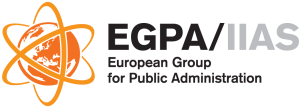Call for papers: EGPA 2015 Conference
Call for papers on "Well performing public sector organizations: Governance capacity and legitimacy" for the Conference of the European Group of Public Administration (EGPA) that will be held 26-28 August 2015 in Toulouse, France. Deadline for abstracts proposals is April 15 2015.

Hovedinnhold
CALL FOR PAPERS
Well performing public sector organizations: Governance capacity and legitimacy
The EGPA Study Group on Governance of Public Sector Organizations studies different aspects of public sector organizations, such as their origin, internal management, autonomy and control, accountability, specialization and coordination , interactions with other organizations, their role in policy making and implementation, their performance, and so on. Different types of public sector organizations are studied, ranging from ministries, to semi-autonomous agencies, state-owned companies, government foundations, partnerships, and so on – at different government levels (supranational, national, regional and local).
A core question is what makes a well performing administrative apparatus, including issues of governance and government capacity, legitimacy and trust. The organization and coordination of public resources, decision-making systems and governance tool as well as the public perceptions and attitudes toward government bodies are therefore all important issues to be addressed in this study group.
The effects of NPM reforms in the past and the current financial crisis have led to a new wave of reforms in the landscape of public sector organizations. There are different labels for these new reforms such as post-NPM, restoration of coordination, and ‘whole of government’, new Public Governance and neo-Weberian reforms. Centers of government are (re-) strengthened and granted more coordinating power. The ‘rationalization’ of semi-autonomous agencies has led to a wave of mergers and reorganizations of existing organizations. In other cases, tasks have been shifted around and re-clustered in for instance shared service centers through a voluntary or top down process. The latter type of reorganization b may create economies of scale and scope, but may also lead to new interdependencies, risks and transaction costs. In many countries, new laws and regulations have been imposed to tighten controls. Budget cuts have led to reforms in personnel policies and downsizing of public sector organizations more generally. Network arrangements, lead agencies and partnerships are developing in the shadow of hierarchy, for example to handle wicked issues; issues that cut across organizational borders, administrative levels and policy sectors, and which are characterized by complexity, ambiguity and uncertainty. ‘Wicked issues’ are often transboundary, representing a misfit between organizational structure and problem structure.
These new reforms do not necessarily replace old reforms. In many cases, the new reforms build on top of the old reforms, leading to complex and mixed relations between public sector organizations on the one hand and the government and parliament on the other. This can be seen for example in the field of accountability, where traditional forms of hierarchical (vertical) accountability – to the minister – are combined with new forms of horizontal or diagonal accountability – for example to stakeholders, or to the public for example through the media. Also, these reforms create a new balance between autonomy and control, raising questions about the actual (informal) autonomy of government agencies and the accumulation and overlap between control instruments.
The aim of the new reforms is to create more coordination and to improve performance and quality of policy implementation. Unfortunately research into results is scarce, but when carried out shows a mixed picture: some reforms have led to an improvement, others have not led to significant changes, and some reforms have in fact led to a deterioration of performance. This raises doubts whether the expected effects of the administrative reforms will be achieved.
We invite papers that present research findings on these processes of reform, on governance capacity and legitimacy, on new arrangements for public sector organizations, and the results thereof. Different policy areas can be addressed such as internal security and safety, crisis management, climate, unemployment, poverty, immigration, public health, etcetera. Papers can be descriptive or explanatory, but they should have a clear conceptual and theoretical basis and meet appropriate methodological standards. Comparative papers (across time, countries, government levels or policy sectors) are particularly welcomed. The Study Group aims to expand its boundaries by inviting researchers from public administration and other disciplines like management research, organization studies, and public policy.
Co-chairs of this Permanent Study Group are:
Prof.dr Per Lægreid
Department of Administration and Organization Theory
Uni rokkan Centre University of Bergen, Norway
Prof.dr Koen Verhoest
Public Administration & Management Research Group
Dep. of Political Science - University of Antwerp, Belgium
Prof.dr Sandra van Thiel
Public Administration
Radboud University Nijmegen, Netherlands
